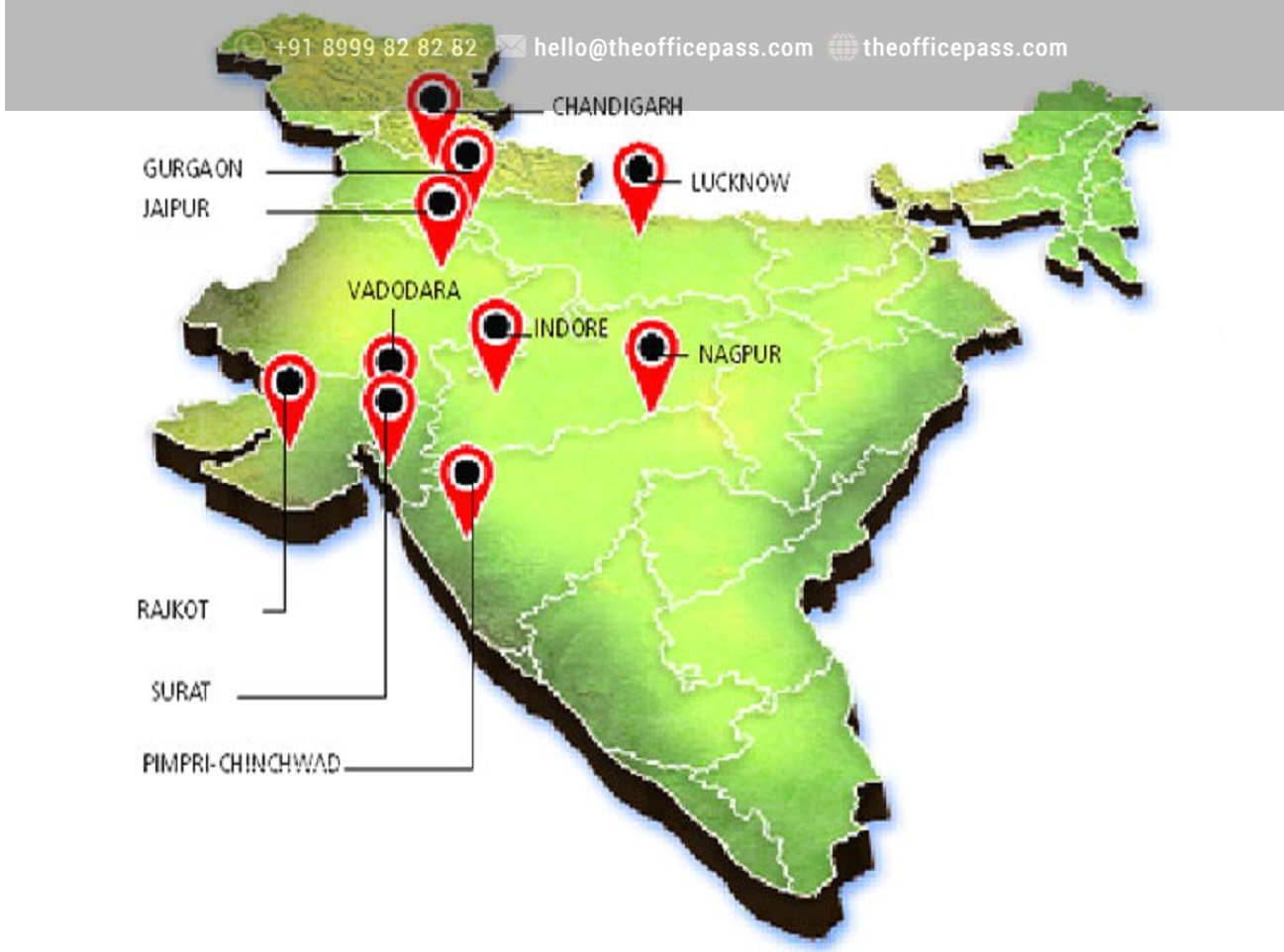With the emergence of the start-up ecosystem in India, another predominant trend also took root and began transforming the conventional workspace scenario: the concept of flexible and shared offices. Needless to say, the first beneficiaries of this trend have been major cities like Bengaluru, Delhi, Mumbai, Hyderabad, and Chennai, and they continue to be at the top of the demand graph for shared workspaces.
Coworking in tier 2 cities in India
Even as large corporates, medium-sized businesses, and multi-national companies opened up to the idea of coworking spaces, the concept didn’t remain confined to such tier 1 cities alone. Cities like Pune, Indore, Chandigarh, Ahmadabad, Jaipur, Kota, Lucknow, Udaipur, Bhubaneswar, Jabalpur, Surat, Rajkot, etc. have been witnessing the rise and popularity of coworking in tier 2 cities in India – as a viable and cost-effective alternative to traditional offices. The incredible popularity of shared offices among start-ups, freelancers, entrepreneurs, and established companies is a clear indication of the expanding horizon of coworking in tier 2 cities.
So, what makes coworking in tier 2 cities, such a lucrative option? Let us take a look.
hugely Affordable office spaces
The tier 2 markets in India are a hotbed of possibilities as far as innovation and skills are concerned. Availability of a large workforce and resources add to this framework. When provided with the right kind of infrastructure, the tier 2 cities in India can strike the right chord in terms of cultivating entrepreneurs and supporting large-scale business enterprises. However, one thing stands in the way of this proposed success route: the deficiency of funds to leverage business in the seed stage.
Most start-ups and entrepreneurs in tier 2 cities prefer to step into the business ecosystem with a low capital base. But given the upswing in real estate prices and the high rent of offices, leasing a traditional office often means a huge and risky investment. Flexible office spaces have come across as the perfect solution to this predicament. Catering to the specific needs of freelancers, start-ups, consultants, and companies alike, coworking spaces offer an affordable option to carry out work in a professional environment. No wonder, even large companies and corporate houses are also opting for coworking in tier 2 cities instead of taking up formal office spaces on a lease.
Flexibility to the core
In the initial days of starting a business, entrepreneurs and start-ups often begin with a low manpower base. The idea is to expand once the endeavor gets a foothold in the industry and the cash flow starts to increase. Coworking in tier 2 cities help to keep the operational costs low while ensuring that the options of scalability remain open.
For example, if a start-up opts for a coworking space in Gurgaon, the underlying benefits do not remain limited to the massive cost advantage alone. The spaces for coworking in Gurgaon offer seats based on client requirements. So, if the start-up starts with a 5-member team and then wants to increase its members in a few months’ time, they don’t have to worry about leasing a new place for their growing team. On the other hand, if a large company decides to curtail and retain a smaller team after hiring a certain number of seats at a coworking space, they can easily give up on the seats and save on the costs.
Such flexibility in increasing or downsizing a team due to coworking spaces ensures that entrepreneurs and companies can give shape to their business dreams in tier 2 cities without worrying about scalability issues.
Also Read: Traditional Workspace vs Coworking Space
Networking opportunities and technology partners
More often than not, building a business network and finding technology partners can turn out to be a challenge for businesses or individuals trying to establish their base in tier 2 cities. One of the biggest advantages of being a member of the coworking community is that networking opportunities come along easily. A shared office is not just about an open floor plan or a flexible work environment; it is also about the various people who come to work there from different backgrounds. Intermingling with such a heterogeneous group of people facilitates the building up of a community of like-minded people who are ready to help one another out. Finding technology partners for business ventures also becomes easy when one is a part of a coworking community.
Professional workspace with all necessary facilities
Regardless of the size or nature of a company or business, having a professional and presentable office space is essential when it comes to meeting clients. In a traditional office, the responsibility of furnishing the space and maintaining it lies with the business owner. This means one has to spend extra time, effort, and money to make sure that the office looks professional enough. Coworking in tier 2 cities are no less than their counterparts in the tier I cities. This means one can get all the facilities required for running an office without having to shoulder the burden of buying or maintaining them. This concept works in favor of the large companies as well, who don’t want to compromise on the facilities-front when hiring office space.
Happy coworking.



